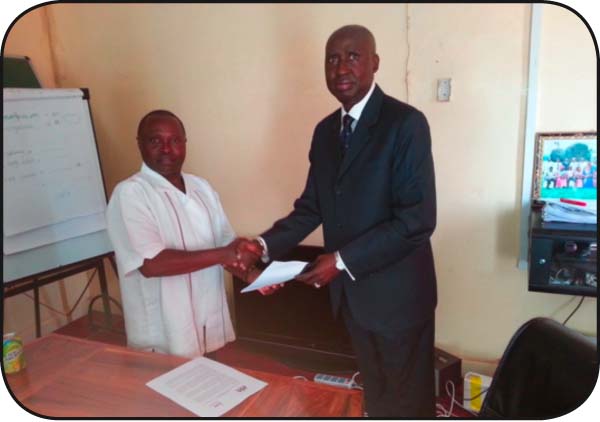
It is hoped that such a partnership will help fight the two perennial problems of the limited productivity and economic carrying capacity of land used for farming, and the poorly developed domestic markets that generate very low real demand for the main produce of smallholders.
The National Agricultural Land & Water Management Development Project – Nema (supported by the Government of The Gambia & the International Fund for Agricultural Development – IFAD) is a 7-year project, 2013 – 2019 whose primary aim is to support and further develop the Gambia Government’s priority to transform the prevailing largely rain-fed production systems into more productive and sustainable market-oriented agriculture based on the smallholder.
The main agricultural activities either side of the River Gambia are rain-fed field crops (rice, other cereals, groundnuts) supplemented by very little irrigation, semi-intensive vegetable production and some livestock. Most of the farm households operate on a low-input/ low-output subsistence level, within adequate production for household needs and infrequent/opportunistic sales. The outcome is widespread rural poverty particularly among women and youth.
According to the Memorandum of Understanding (MOU), upon confirmation of eligibility of a credit facility, after reviewing and approving a bankable business plan from the beneficiary client,they shall then fund their account with Trust bank with 10% of the cost of the asset that they propose to invest in, whilst Trust Bank shall match the grant with a loan of 45% of the value of the investmentand the other 45% will come from NEMA’s purpose type Matching Grant called the Capital Investment Stimulation Fund (CISF) as a grant to the beneficiary.
During the signing ceremony Mr Modou Gassama, the Project Director, expressed satisfaction that a bank the size, reach and reputation of Trust Bank is coming on board. He took the opportunity to encourage other financial institutions to be part of this Capital Investment Stimulation Fund matching grant partnership to stimulate economic growth.
He further noted that one crucial priority is to reduce the cost of money. Real interest rates on loans to agricultural projects exceed 20 per cent in The Gambia and businesses will face huge challenges to thrive if it has to borrow at those rates.
He called on financial institutions to make it possible for smallholder producers to access capital well below 10 per cent – “only if we simplify banking, reduce perceptions of risk, and introduce functioning insurance.”
He said: “By providing asset acquisition loans at attractive interest rates will surely drive our economy to higher heights to not only compete with frontier markets, but join the BRICs (Brazil, Russia, India, China and South Africa) as an emerging market.”
For his part the Managing Director of Trust Bank, Pa Macoumba M. Njie, spoke of the benefits that this partnership will bring. These, he said, including creating new customer awareness and bringing about opportunities in changing lives through productive farming assets as well asenhancing standards of productivity and to a large extent increasing net incomes.
He said Trust Bank also stands to increase its client base and earnings through its lending to the agricultural sector.
The partnership will also lead to increasing the output of rice and vegetables and ensuring food security requirements and ultimately economic growth.
Mr Njie concluded by expressing his bank’s resolve to work even closer with NEMA to achieve “our common goal of a successful implementation of this very timely and crucial project to ensure that Gambia is well poised to achieve food self-sufficiency.”
Along with the Project Director, NEMA was represented by other senior officials of the Project Support Unit (PSU), while the Trust Bank Managing Director was accompanied by Mr Omar Kanteh, Corporate Account Manager, whose portfolio includes NEMA, and Mr Dodou Nyang of Marketing.
The meeting was chaired by Mr Banky Njie, Business Development Officer.

